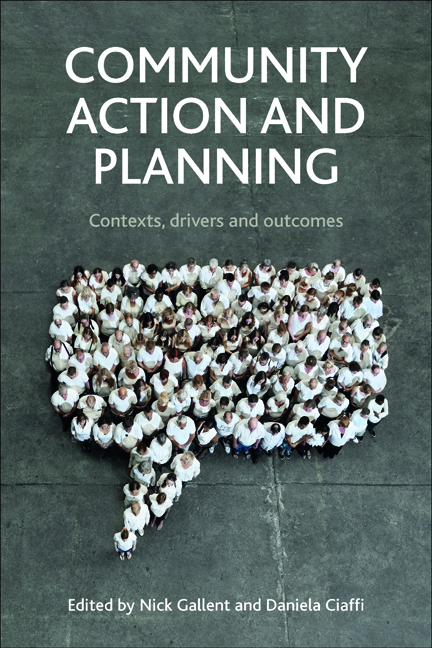Preface
Published online by Cambridge University Press: 04 March 2022
Summary
The desire of community groups to take greater control and responsibility for their own lives and neighbourhoods is a long-term and fundamental trend. It pre-dates all recent concern for government and governance. It is bigger than periodic episodes of community activism, and it is certainly much bigger than local concerns over the planning system and what that system should look like. The case studies assembled in this book attempt to capture something of the diversity, across the Global North, of the local experiences of community action and planning and how these experiences are embedded within different societies, different political and government traditions and in different urban or non-urban contexts. The book is divided into four parts. The first part is predominantly about foundational thinking on communities, planning and collaborative action; the second part is predominantly about the contexts in which community action and planning takes root; the third part is about the actions that communities take and, in some instances, about the plans they make; and the final part is predominantly about the desire of some, but not all, communities to shape the political environment outside of their immediate neighbourhoods and overcome the barriers of ‘scale’. The word ‘predominantly’ is crucial; readers will quickly realise that all of the case studies deal, to some degree, with the contexts, drivers and outcomes of community action and planning. They each analyse outcomes born of different contexts, which set in train alternative processes. And they all deal with the fundamental trend of communities (defined in different ways) wanting to take control and shape an outcome, occasionally because of frustration with higher authority, but always because taking control – of their everyday lives and of the neighbourhood they call home – is an important way in which the notion of ‘community’ finds practical expression.
Edited books are one of the most challenging ways to disseminate research. We, as editors, are hugely indebted to the book's contributors who have each offered their own perspectives on the processes and outcomes of community action and planning in their own countries and in places where they have conducted primary research.
- Type
- Chapter
- Information
- Community Action and PlanningContexts, Drivers and Outcomes, pp. xiii - xivPublisher: Bristol University PressPrint publication year: 2014



